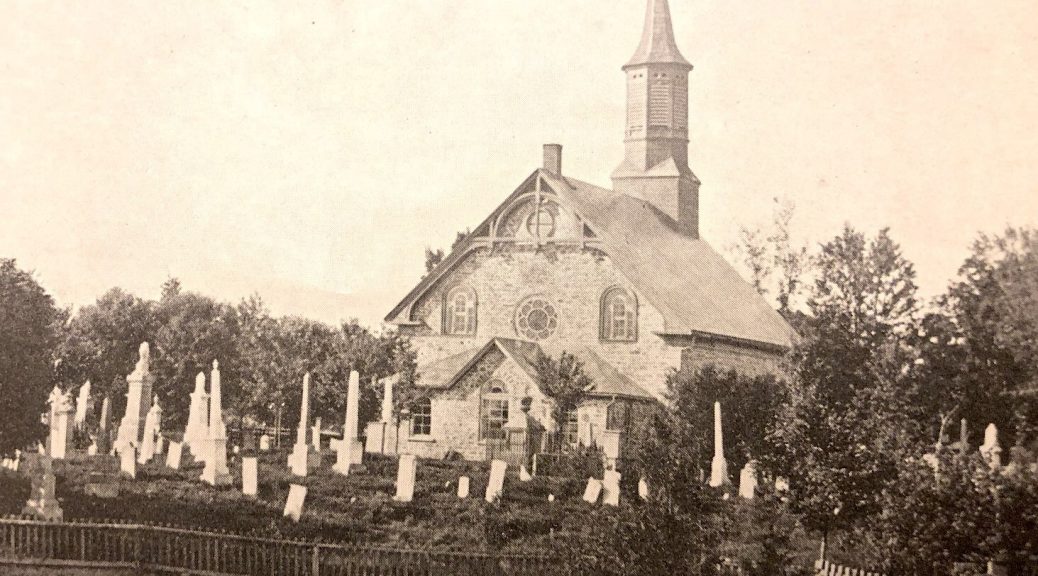Name: St. Andrew’s Presbyterian/ United Church Cemetery
Location: 5793 Church Avenue, Williamstown, ON
Confirmed Loyalist Burials:
- Rev. John Bethune (Royal Highland Emigrants)
- Duncan Cameron (King’s Royal Regiment of New York)
- List of others is forthcoming
Remarks:
The cemetery that surrounds the church has, in all probability, the highest concentration of Loyalist burials and tombstones in the region.
In 1912, the church celebrated the centenary of the building of its church, and the 125th anniversary of the founding of the congregation. During these celebrations, the church devoted an entire day to honour the United Empire Loyalists, during which time the tombstones of Loyalists received special attention. As recorded in the published booklet, issued shortly after the event:
The proceedings opened with the decoration of the graves of those who are connected with the church. It was a very impressive ceremony. The graves were decorated with beautiful flowers. A large concourse of members of the congregation and friends from a distance marched to the cemetery where they gathered in front of the grave of the first pastor, Rev. John Bethune.
Bethune was the chaplain of the Royal Highland Emigrants, a Loyalist regiment also known as the 84th Regiment of Foot. At this ceremony, Rev. A. Govan said:
In connection with the centenary services we thought it appropriate that today, before the U.E. Loyalist addresses were made, we should come to the cemetery and place flowers on the graves of those who did so much for the country to which they belonged and for the church of our fathers.
At the same ceremony, British MP Donald McMaster, a native of Williamstown, also made a few remarks on the Loyalists interred in the cemetery:
We are standing on sacred ground where the remains of many of the United Empire Loyalists have been deposited. I will not refer to the unique struggle through which that devoted people went in connection with the American Revolution and their subsequent settlement in different parts of the Dominion. They had to depart from old associations, from old friends, not, happily, from their old allegiance, to which they adhered most devoutly. It was hard that they should have had to sacrifice their property and comfortable homes, but so far as sentimental considerations were concerned there was one loss they felt more than any other, and that was that they were separated from the graves of their people. Happily in this country we are not likely to be visited with such a terrible depression.

